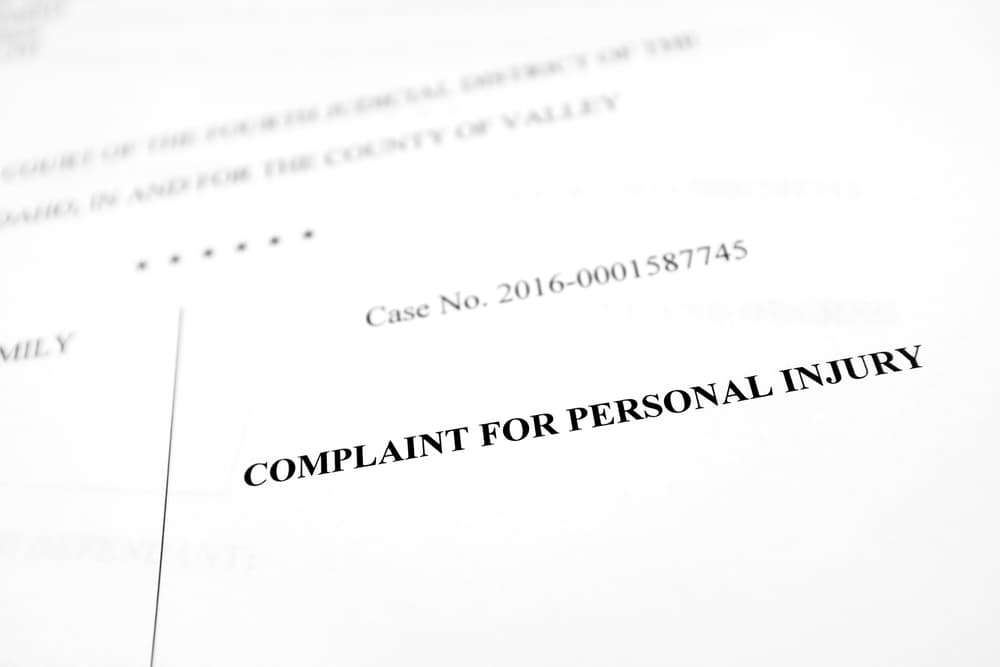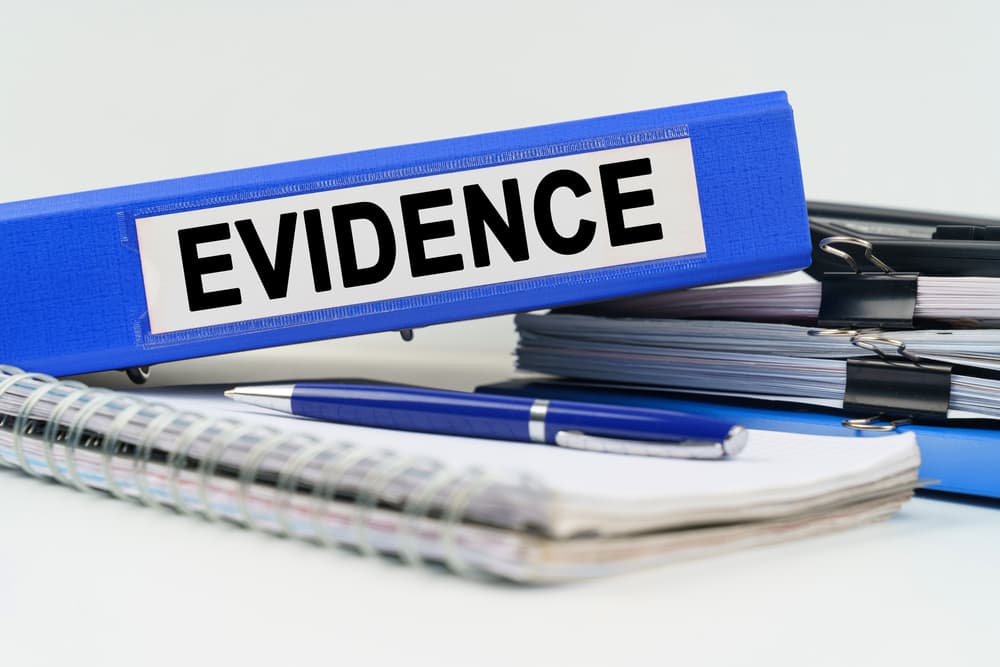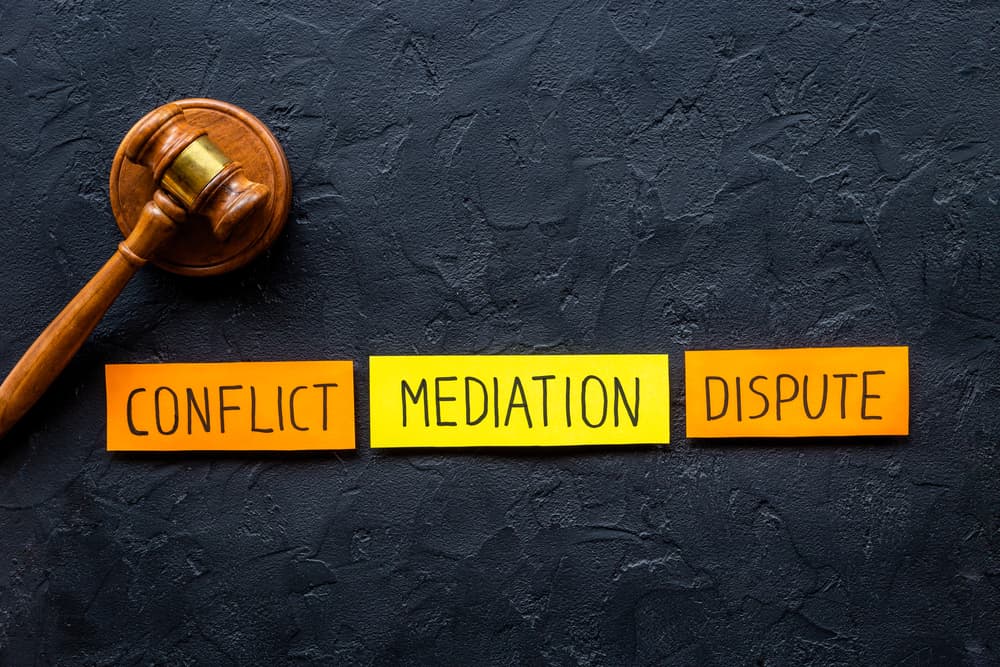If someone else’s negligence caused an accident that led to you suffering a severe injury, you want justice, and you want it quickly. Filing a personal injury lawsuit can deliver the compensation you deserve, but how long will it take? This article will cover some factors that will help answer that question.
You must find a Florence personal injury attorney who will give you the best chance of achieving a positive result in your personal injury lawsuit. But your lawyer cannot make promises they can’t deliver, such as telling you you’ll receive your money in a few days when it can take much longer. A good attorney will always be transparent and truthful.
The Initial Stages: Filing the Complaint

The complaint is the formal document serving as the cornerstone of the personal injury lawsuit. The document details the plaintiff’s claims (you, the person filing the lawsuit) against the defendant (the party causing the accident). The complaint sets the tone of your lawsuit and defines the parameters.
Once your attorney files the complaint, they will serve it to the defendant. This complaint starts formal legal proceedings. Think of it as a trigger, prompting the defendant to respond within a specific timeframe.
As with most aspects of a personal injury lawsuit, the time it takes to complete this stage depends on various factors. These factors include the court’s caseload, where your attorney files the lawsuit, and the complexity of the dispute.
Pre-Trial Discovery: Analyzing the Evidence

If you win your personal injury lawsuit, you must show proof that the at-fault party caused the accident. Your attorney will have worked to find that proof by investigating to gather evidence. They’ll share this evidence with the opposition during the phase of the lawsuit known as discovery.
Both sides will request documents and may also perform interrogatories and take depositions from the parties involved in the accident. They’ll then sift through the information and analyze it so they have a complete understanding of the case.
Discovery is critical to a personal injury lawsuit. It provides a clear picture of the strengths and weaknesses of the plaintiff’s and defendant’s positions.
The length of time discovery takes depends on the extent and complexity of the evidence. The more intricate the evidence, the longer it will take to examine thoroughly. If both sides cooperate in sharing information, that can expedite the process. On the other hand, disputes over requests can cause delays.
Negotiations and Settlement Attempts

Just because your lawyer filed a personal injury lawsuit doesn’t mean you’ll have to go to court. More than 90 percent of cases settle without anyone having to step foot in a courtroom. The at-fault party’s insurer will try to avoid a trial. They don’t want to pay their legal team. There’s also a chance a judge or jury can award more to the plaintiff than a settlement will cost.
But your attorney must still have strong negotiation skills. Insurance companies will do all they can to argue you don’t deserve the compensation you’re demanding. Your personal injury lawyer must have the experience to make the most compelling argument on your behalf.
Negotiations can end quickly or go on for weeks or months. The stronger your evidence, the less time it should take to settle. But if the case is complex, or the defendant chooses not to negotiate constructively, then it will take longer.
Settlement discussions can occur anytime during a personal injury lawsuit, making the timeline unpredictable. The insurer can decide to settle before, during, or after discovery. Negotiations are very delicate, requiring tact, patience, and an open mind.
Mediation

While skilled attorneys can typically negotiate fair settlement offers, there are times when insurers will refuse to compensate a plaintiff adequately. If this happens, there’s one more option before going to court – going to a mediator.
A mediator is a neutral third party facilitating discussions between disputing parties to find a mutually acceptable resolution. If the disputants are committed to the mediation process, they can resolve the case quickly. If they’re not, the process can take much longer.
Mediation is typically very effective. For instance, registered mediators participated in 8,432 cases in one state in recent years, settling 7,024 – an 83 percent success rate. Mediators were successful 80 percent of the time.
The Timeline of Going to Trial

Your personal injury lawsuit will go to trial if negotiations and mediation don’t work. As you might expect, many variables can impact when the trial will start.
These include:
- The availability of court slots.
- The case’s complexity.
- Legal maneuvers both sides employ.
The court schedule is the most significant factor determining when the trial will start. Exact numbers are difficult to find, but the US Department of Labor conducted a study and found that more than 16,000 personal injury lawsuits went to trial in the US that year. That’s a significant amount that can backlog even the most efficient courts.
If a court has a glut of other cases, that can lead to delays. The filing of legal motions, legal team decisions, and the necessity for expert witnesses can also play a role.
The Trial Process: What to Expect
A trial is a series of meticulous proceedings where the court places the merits of each side’s case under a microscope. These proceedings include witness testimony, evidence presentation, legal arguments, and deliberation.
How long will your trial take? If your personal injury lawsuit is straightforward, it can end quickly within a few days. But if the case is complex, it can extend over several weeks. Extensive evidence, intricate legal issues, and numerous witnesses can complicate the case.
Attorneys for both sides will do their best to present their respective cases effectively. Judges and juries will carefully assess the evidence and arguments. The following is a closer look at some of the significant factors that will influence the duration of the trial.
The Number of Parties Involved
The more parties involved in the personal injury lawsuit, the longer the trial will likely take. Suppose your injury resulted from a truck accident. Not only did the truck driver make a mistake contributing to the wreck, such as speeding or driving while impaired, but other parties can also play a role.
For example, the trucking company may have failed to maintain the vehicle properly in the accident. The driver was speeding, but a tire blew out due to wear and tear, making the accident even worse. You can sue that company as well as the driver.
What if the driver was speeding, the tire blew out, and the truck rolled over? The cause of the rollover might have been a sudden cargo shift due to negligent loading. Many trucking companies hire outside businesses to load their vehicles. You can sue the business responsible for loading the truck involved in the wreck.
But what if the brakes failed due to a manufacturer’s defect, contributing to the accident? The manufacturer can be part of your personal injury lawsuit as well.
A trial involving multiple defendants typically takes more time to conclude than a trial involving only a single plaintiff versus a single defendant. The complexity of managing multiple defendants adds intricacies to the proceedings, contributing to an extended duration for resolution.
The Willingness of All Parties to Cooperate
If everyone in the personal injury lawsuit cooperates, the process will run much smoother and faster. Open communication, the transparent sharing of information, and an overall collaborative approach can expedite proceedings. However, if disputes arise, the defendant doesn’t want to share information, or interactions become contentious, it can create delays.
Unforeseen Events
There’s a chance something unexpected can occur. A judge may fall ill or require replacement for another reason. The new judge will need time to acquaint themselves with the case. One of the sides can change legal teams. The new counsel will need to familiarize themselves with the case details. These or other changes can lengthen the trial.
Post-Trial Motions and Appeals
You might assume your personal injury lawsuit will end with a verdict, but that might not be true. Reaching a verdict doesn’t necessarily mark the resolution of the case. The losing side can file motions and appeals, significantly prolonging the process.
For example, the defendant or plaintiff can challenge the verdict or other trial aspects, adding more complications to the trial’s aftermath.
The appellate court process, which follows post-trial motions, can add months or even years to the timeline. Like the original personal injury lawsuit, factors determining the length of the appeal include the complexity of legal issues, rules of the appellate court, etc.
Tips for Expediting the Personal Injury Process
Many factors involving the timeline of a personal injury lawsuit are out of anyone’s control. However, there are proactive measures everyone involved in the case can take to make the process as efficient as possible. The following are just a few of those measures.
Open and Transparent Communication
The parties must be transparent and communicate with each other when there are clear channels for information exchange that expedite the flow of relevant details. This exchange will significantly improve the efficiency of the process.
Cooperation During Discovery
The efficiency of the discovery process can profoundly impact your case’s timeline. Both sides must respond promptly to information requests and be willing to provide all relevant documents. When the plaintiff’s and defendant’s teams work together, they can promote efficiency and streamline the process.
Meaningful Settlement Discussions
When your attorney negotiates with the defendant’s insurance company, the insurer must act in good faith. They must be serious about reaching a resolution that both sides can agree on. If they are, that can save a lot of time and resources.
Select an Experienced Legal Team
Your best chance of seeing a quick and positive result is to hire an experienced personal injury lawyer. A seasoned attorney will know how to investigate an accident to collect powerful evidence. Hiring that attorney will be necessary because the investigation must begin quickly before critical evidence disappears.
You should also choose a personal injury attorney skilled in negotiating with insurance companies. Negotiations are very nuanced, delicate proceedings. You want an attorney who will be patient and willing to compromise so you get the compensation you deserve. But your attorney must also be willing to fight if the insurer refuses a fair settlement.
Finally, you want a lawyer to take your personal injury lawsuit to court if needed. Some law firms are known as settlement mills. They accept unfair settlements to resolve a case quickly and move on to the next one. These firms only care about making as much money as possible and are willing to shortchange their clients.
Strategic Case Management
The best attorneys are proactive when approaching a personal injury lawsuit. They don’t wait to conduct investigations and demand compensation from at-fault parties. They adhere to all court-mandated guidelines and don’t delay building the best strategy.
By embracing these and other strategic measures, attorneys defending plaintiffs in personal injury lawsuits can expedite the legal process and improve a client’s chances for success.
A Skilled Personal Injury Attorney is Standing By to Tell You More

Understandably, you want your personal injury lawsuit resolved as fast as possible. You face many medical expenses; you might also be losing money because you can’t work. The uncertainty and stress can be overwhelming.
But if you’re going to have the best opportunity of obtaining the money you deserve, you must have patience and persistence. If the evidence is clearly in your favor, there’s a possibility of resolving your case within a few days. The insurer will likely offer a fair settlement, and you can move on with your life.
However, there’s a greater likelihood your case will take longer than you like. Your lawyer will fight to ensure you get maximum compensation, whether through negotiation, mediation, or a trial. This fight can take weeks, months, or even longer. But if you can stick to your convictions, the chances are good your persistence will pay off.
